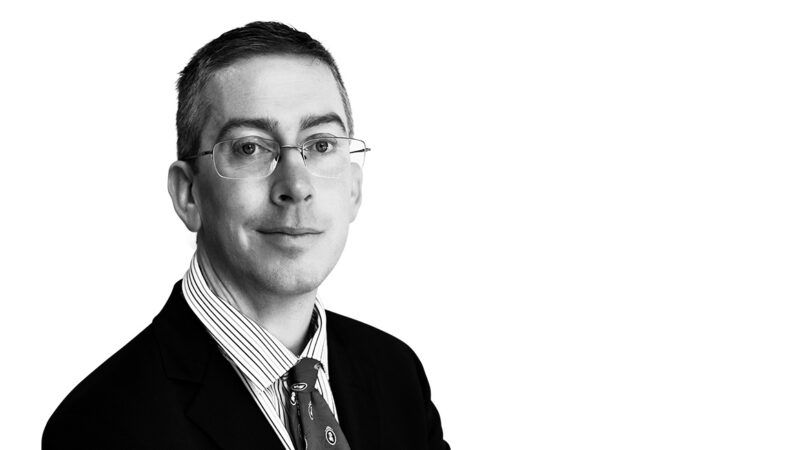Bryan Caplan: How Regulation Makes Housing More Expensive
Moving is no longer a viable way to grow your wealth in the U.S., says the author of Build, Baby, Build.

Bryan Caplan is known for his unconventional approach to tackling big issues. With his latest book, Build, Baby, Build: The Science and Ethics of Housing Regulation, he employs a graphic novel format to make the case for a more open approach to housing policy, partnering with illustrator Ady Branzei. It's his second venture into the world of illustrated narratives, following 2019's Open Borders: The Science and Ethics of Immigration. Reason's Christian Britschgi asked Caplan about his motivations and his outlook on the future of the "yes in my backyard" (YIMBY) movement.
Q: Why make the case for more housing in a graphic novel form?
A: There is so much high-quality research out there on the topic, and yet almost no one would ever read it because most of it's really boring. Honestly, I'm just looking for some way of getting other people interested. The main pitch that I've been giving for this book when someone just gives me 20 seconds is, "I've written the most fascinating book that has ever been written on housing regulation."
Q: You argue that ending most zoning and building regulations would impact many other problems we are all concerned about. What are some examples of that?
A: I start off with the basics, which is that housing regulation has greatly inflated the price of housing, and deregulation would get the price of housing back down. This is such a large part of the typical person's budget that getting the price of housing down by 50 percent [makes] a big difference in overall standard of living.
This means that there would be a lot of additional employment for people in the construction industry. A demographic that has done really badly in the past few decades [is] noncollege males. Well, that's basically the main kind of people that work in the construction industry.
This one is subtle and fun. There's a traditional path of upward mobility that Americans used to have: Move from wherever you are and go to the highest-wage parts of the country. This doesn't work anymore. Housing prices have gotten so high in what we call our gold rush areas of the country that they eat up more than 100 percent of the wage gains you get. It is still true that you can get a raise by moving to the high-wage parts of the country. The problem is that now that wage gain is less than the housing cost, it's no longer a viable route out of poverty.
Q: Your book presents big cities as bright, fun, futuristic places. How much of the arguments from NIMBYs ("not in my backyard") do you think is mostly about aesthetics?
A: I was very mindful of the fact that for a lot of people it's just the aesthetics that are bothering them. So what I wanted to do in this book was to fight aesthetics with aesthetics and say, "Look, you're so convinced it's going to look bad. Let me get my artist to go and draw it looking good, and maybe that will open up your mind."
Frédéric Bastiat said that so much of the case for government is based upon looking at what's seen and ignoring what's unseen. I think this really goes for housing regulation. If you're looking at something that's really nice, it's easy to believe we wouldn't want to tamper with this perfection. Is it perfect though? Is it really true that we have achieved the pinnacle of aesthetics in this particular neighborhood on this particular day? Let's imagine other ways that could look.
Q: Would you describe yourself as optimistic on this issue? Do you think the YIMBY case will win meaningfully when it comes to changing policy?
A: I'm a conditional optimist. The policies work wonders. I can't say that I'm really optimistic about it winning. Of course, I love the idea that my book will start a political avalanche and everybody will read it and people wave it on the floor of Congress and 50 state legislatures. There's actually a panel in the book where every Supreme Court justice is reading my book. Look, I can dream.
This interview has been condensed and edited for style and clarity.
Rent Free is a weekly newsletter from Christian Britschgi on urbanism and the fight for less regulation, more housing, more property rights, and more freedom in America's cities.


Show Comments (24)